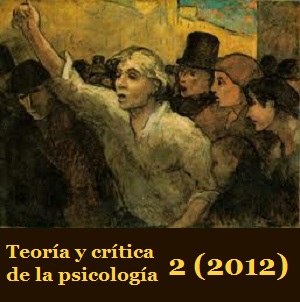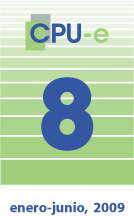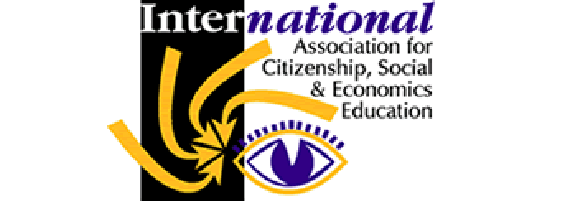Alfabetización económica y consumo
|
Título capítulo de libro |
El desarrollo cognitivo-conceptual sobre la organización social en niños y adolescentes: el caso de la comprensión de las nociones socioeconómicas. |
|
|
Autores |
Diez-Martínez, Evelyn. |
|
|
Año |
2014 | |
|
Libro |
Trayectorias y miradas. Estudios en psicología y prácticas educativas. |
|
|
Coord. |
Iglesias Sahagún, Luis Gregorio. |
|
|
Editor |
UAQ - Fontamara | |
|
Lugar |
Querétaro, México. | |
|
ISBN |
9786078252763 |
Resumen
El presente trabajo intenta ser una presentación del creciente campo de estudio sobre el consumo y el consumismo. Considerando el horizonte histórico, se destacan algunas directrices que sirven para entender el estado actual de preponderancia del mercado y, en ese contexto, se ubica el fenómeno del consumo tal como se verifica en la Modernidad Tardía; sobre la base de lo anterior se ofrece una reflexión sobre las relaciones que la Psicología como disciplina ha tenido con el fenómeno y las prácticas del consumo. Así, después de hacer una revisión general al estado del arte de los estudios psicológicos sobre el consumo concluimos en la necesidad de promover aproximaciones diversas, reflexivas y críticas sobre el fenómeno y en particular consideramos la importancia de promover una psicología crítica de la cultura del consumo.
Palabras clave: consumo; cultura del consumo; mercado; psicología económica; psicología crítica.
Resumen
La alfabetización económica y financiera está incluida desde hace tiempo en la currícula escolar de países como los Estados Unidos de Norteamérica, Inglaterra y Gales así como de Japón. Su objetivo es proporcionar al alumno elementos de aplicación a la vida cotidiana así como una mayor comprensión sobre las Ciencias Sociales y la Educación Ciudadana. En México la alfabetización financiera no está incluida en la currícula. Recientemente, la Secretaría de Educación Pública en México hizo señalamientos sobre la necesidad de proporcionar educación financiera a los estudiantes. Este texto presenta reflexiones sobre las definiciones y los alcances de este tipo de contenidos en la educación básica, y se hacen sugerencias basadas en investigación en Psicología Evolutiva, sobre la necesidad de incluir contenidos adecuados y con una visión más amplia, con miras a futuro que contemplen no solamente educación financiera sino también educación socioeconómica en general y educación para el consumo sostenible.
Palabras clave: Alfabetización, economía, educación del consumidor, currículum.
Abstract
Mexican secondary and high school curricula do not include any economic or financial education. Furthermore, Mexico's actual banking infrastructure is not widely spread around all of the country, and several towns and villages still do not have banks. Hence it becomes difficult for adolescents to understand these institutions, which are important in the socio-economic organization of societies. In order to provide research data about levels of comprehension among adolescents of these topics, so that it can eventually be considered by Mexican authorities that produce school curricula, it was decided to develop a pilot study with a sample of 25 adolescents between 12 and 16 years of age from a middle-class socio-economic context, who were individually interviewed about bank functioning, interest rates and the difference between credit and debit cards. Subjects were tested individually in their schools by the researchers and the interviews lasted approximately 25 minutes. All interviews were audio taped and later transcribed. Results show that the majority of subjects understand interest rates on loans but cannot relate them to interest rates on deposits. They also confuse credit and debit cards. Data are discussed in terms of levels of comprehension and possible application to school curricula.
Abstract.
The impact of everyday street floating information on children's knowledge about diverse aspects of their social world has hardly been studied in relation to their understanding about socio-economic knowledge. Though several studies have analyzed children's and adolescents' behavior related to the impact of socialization agents on their consumption habits, little is known about how and when they start analyzing several everyday communication situations concerning economic interchanges. Mexican children from different socioeconomic backgrounds were individually interviewed about diverse street information advertisings or written messages referring to economic interchanges in order to attempt understanding of an aspect of their cognitive social development. Subjects were shown a number of cards including photographs. Subjects were asked to describe the photograph and to explain its content and the type of information or communication situation that it involved. Some examples were a string with flags on the edge of a house on sale, an ATM machine, an exchange bureau, and written texts such as ‘factory prices' on the front of a department store. Results show cognitive developmental trends as well as socioeconomic influences on subjects' answers. Discussion is made taking into account theories of children and adolescents socioeconomic development as well as social and cultural aspects involved in economic literacy.





